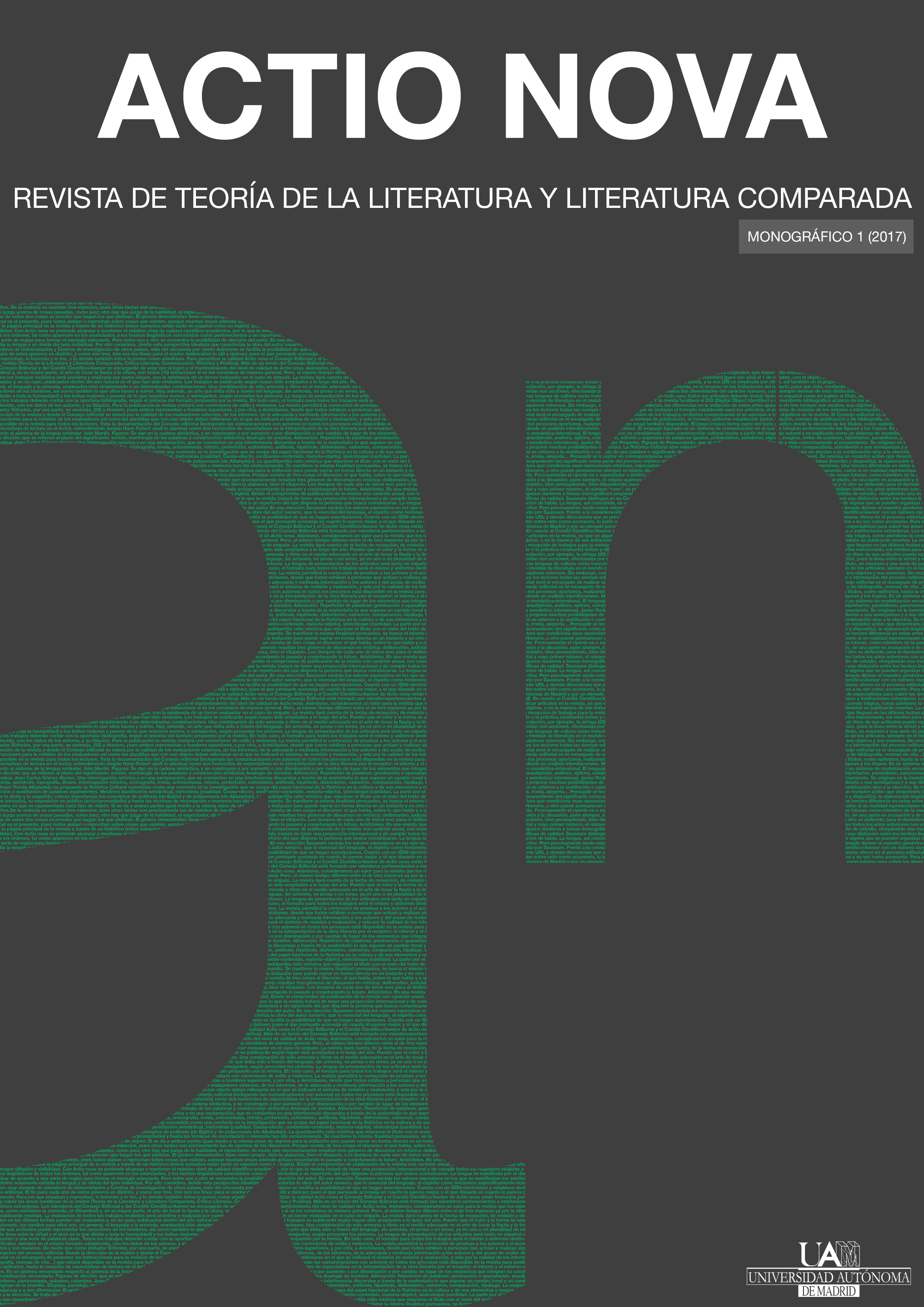Keywords:
selfism, double, specular play, archeology of psyche, inner self, confessionCopyright (c) 2017 ACTIO NOVA: Revista de Teoría de la Literatura y Literatura Comparada

This work is licensed under a Creative Commons Attribution-NonCommercial 3.0 Unported License.
Abstract
Francisco Umbral does not choose Byron randomly. Indeed, he quickly understands that with Byron mimetic excitement is twofold. Specular play is constantly at work, to such an extent that when Francisco Umbral speaks of Byron, he is also speaking of himself. This study purports to bring to the fore the half-concealed confessional nature of Umbral’s writing.
Downloads
References
Colomb, Romain (1855): Correspondance inédite, Paris, Michel Lévy.
Manso, Christian (2015): «Diarismo y columnismo en Francisco Umbral: Diario político y sentimental, in Francisco Umbral. Verdades y contraverdades del Cuarto Poder», Bénédicte de Buron-Brun (ed.), Iluminaciones, 104, Sevilla, Renacimiento, 2015, pp. 532-551.
Martineau, Henri (1933-1934): Correspondance, Paris, Editions du Divan.
Maurois, André (1952): Don Juan ou la vie de Byron, París, Editions Grasset et Fasquelle.
Marx, Eleanor y Aveling, Edward (1888): «The difference between Byron and Shelley», Stuttgart, Die Neue Zeit, núm. VIII.
Paupe, Adolphe (1908): Correspondance, Paris, Charles Bosse.
Stendhal (1830): «Lord Byron en Italie», La Revue de Paris, de marzo de 1830, que luego reaparece, Stendhal (1854): Racine et Shakespeare, París, Michel Lévy
Umbral, Francisco (1965): Larra. Anatomía de un dandy
Umbral, Francisco (1968): Lorca, poeta maldito Francisco Umbral (1968): Valle-Inclán
Umbral, Francisco (1969): «Lord Byron», Los Protagonistas de la Historia, Madrid Ibérico Europea de Ediciones.
